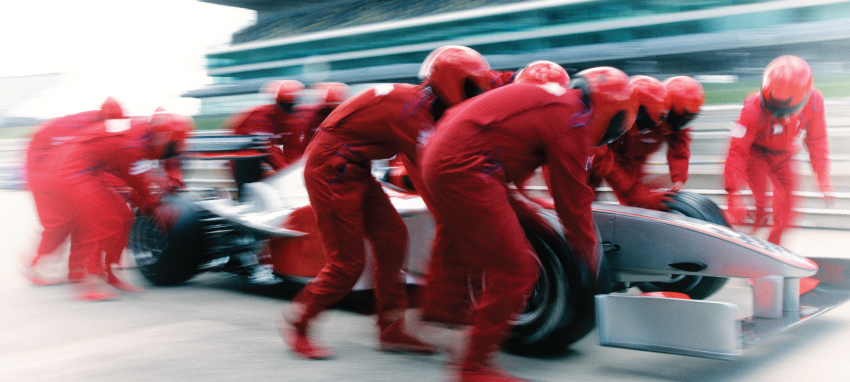“If you want to go fast, go alone.
If you want to go far, go together.”
– African Proverb
We all work in teams, both within and across organisations, to solve complex issues such as repairing final salary pension deficits or designing better outcomes for DC members. What is clear is that no single person nor organisation can solve these issues alone. So there’s a vital need for collective action.
We need teams of trustees, CFOs, advisors, fund managers working together not just as a team but working well as a team. To work well, it is vital that the right mix of people are brought together and developed in the right way.
So I ask the question; Does a team of great individuals alone necessarily make a great team? Can the Rolling Stones, Formula 1 and Pixar have something to teach us about teamwork that can address the global pensions crisis?
What are the ingredients?
In order to build pensions Superteams, we can learn a lot from the Rolling Stones (arguably the world’s greatest ever rock band): Mick Jagger can teach us about leadership and having a clear end point in mind; Keith Richards’ on how creative abrasion adds to the mix; Ronnie Wood who acts as the mediator; and Charlie Watts who is the steady back beat of the band.
And what can team Ferrari teach us about practice? “No one and no team can get better without practice”– for example, the pit stop has over 20 mechanics and is designed and choreographed with science and rigour and then practiced over 2,000 times a year.
At a recent Building Pensions SuperTeams seminar, Khoi Tu shared his thoughts on what makes a Superteam based on his experience of working with the Rolling Stones, Ferrari, Pixar and many others. He spelled out 7 key elements in creating a Superteam:
1. Forge a common purpose
2. Lead the team
3. Pursue the quest for the best
4. Shape the environment for success
5. Build cohesion
6. Master conflict
7. Adapt or die
Khoi highlighted that “Trust” is essential and it is built upon
“Competence, Reliability and Empathy”.
What does success look like?
For a trustee board, it may be a cohesive relationship with the sponsor. Across organisations, it may relate to scheme or sponsor working with their advisors towards a common goal. For the industry as a whole, it could mean creating the right structures and providing the right education to unlock the potential for pensions to fund UK growth through, for example, direct lending to companies and infrastructure investing.
Applying the principles to your team(s)
Stop and think for a moment about the teams you are involved with or lead. Are they working well? Could they be working better? And would creating a Superteam help to deliver a superior outcome?
For further information on Superteams, please visit superteams.org.


I think just reading this African prover “If you want to go fast, go alone. If you want to go far, go together.” is worth reading the blog post. However reading about Khoi Tu’s principles and knowing how much effort you put into building Redington is good inspiration on a Saturday evening.
Thanks Michael
Great post. What I find interesting too on this topic is that a team for one company may not interpret to a team that does well in another company.
I have found that the team has to be behind a common passion, vision and mission too.
Just because a team did well at Goldman Sachs, I have found, does not translate into the same team doing well at your firm.
I have witnessed whole teams being poached and not preforming in another company before from my corporate days.
So another thing to add for thought is do the team share the common vision?
Rob, do have you ever hired based upon somebodies amazing experience at a big firm and proven results, then they just could not do the same for you, because the mission was not shared?
Curious.
Simon Dixon
BankToTheFuture.com
Good point Simon. And I totally agree. In return I would even say that people who haven’t performed strong in other teams before are still able to perform strong in a different team. I also think that besides vision, mission and passion the company values and culture are very important.
Great article Mr Gardner. Here is a link of an article that I stumbled upon a couple of months back. http://www.cassknowledge.com/sites/default/files/article-attachments/managing-pension-scheme-managing-football-team-cass-knowledge.pdf
It clearly reinforces your views on Pension SuperTeams.